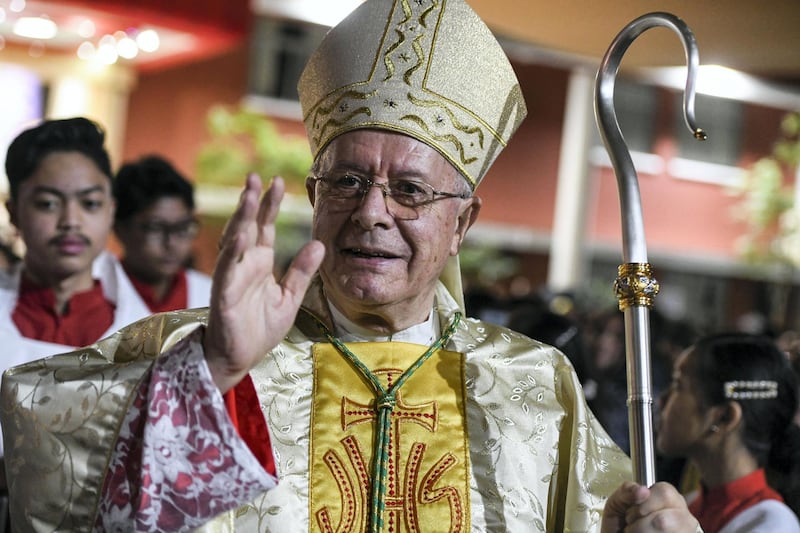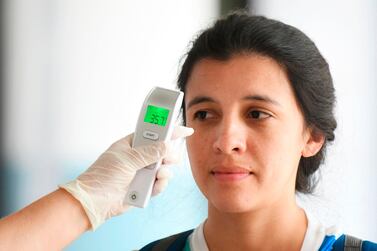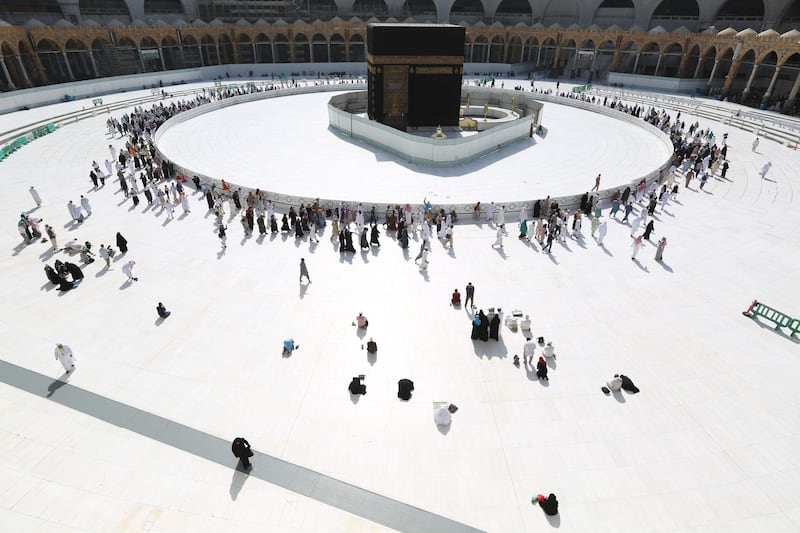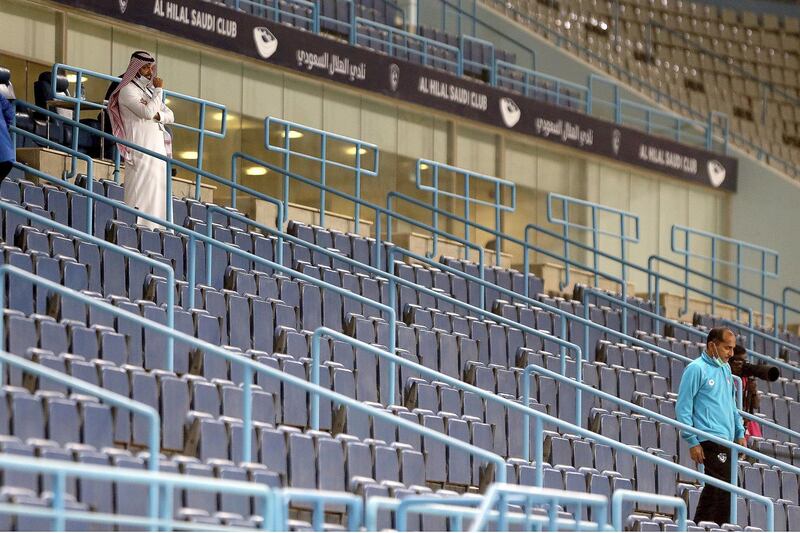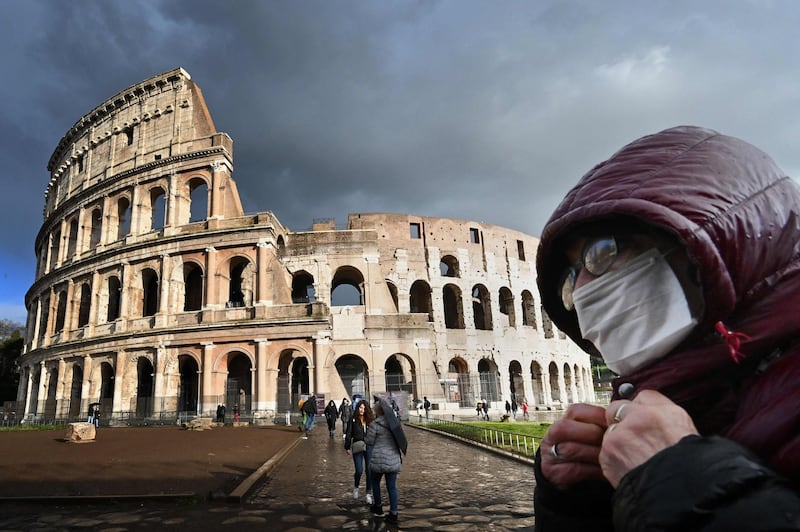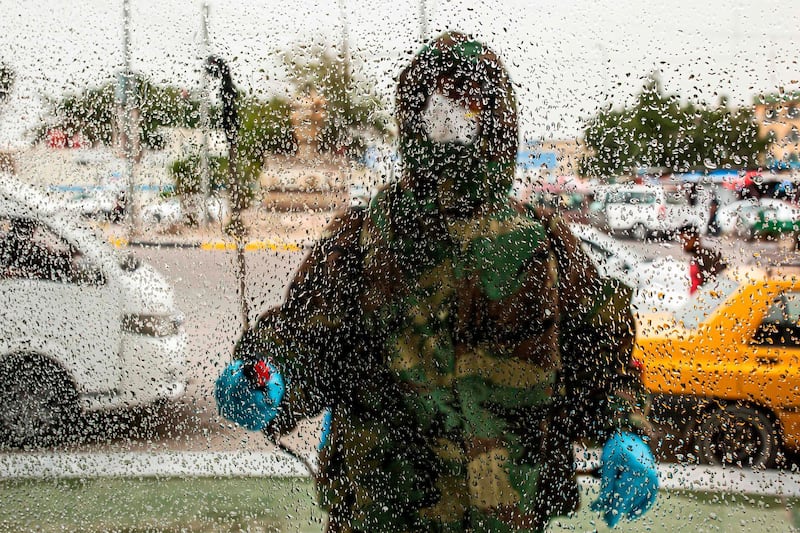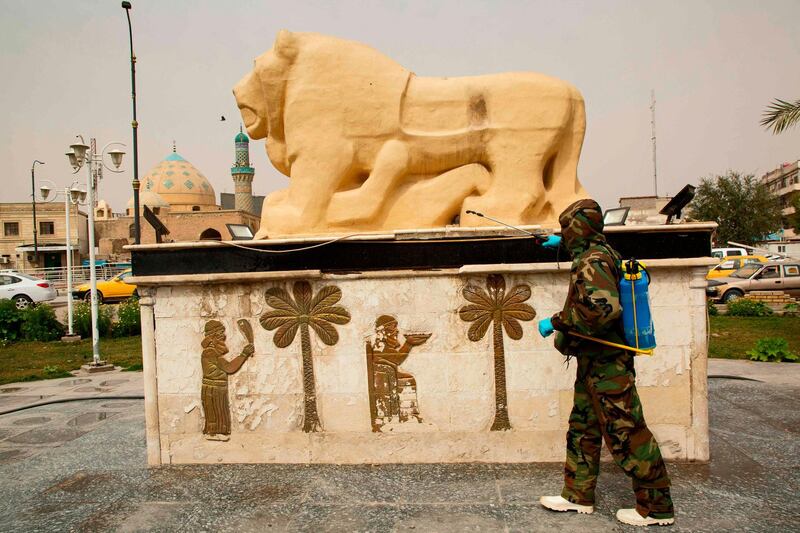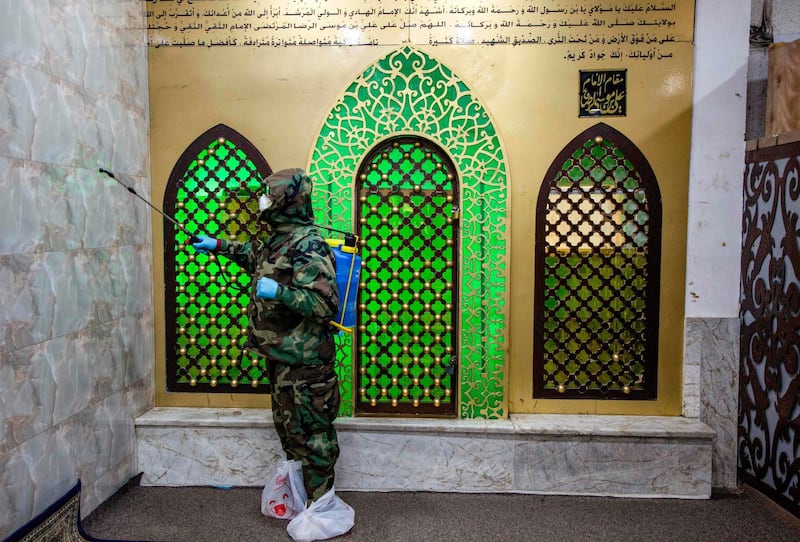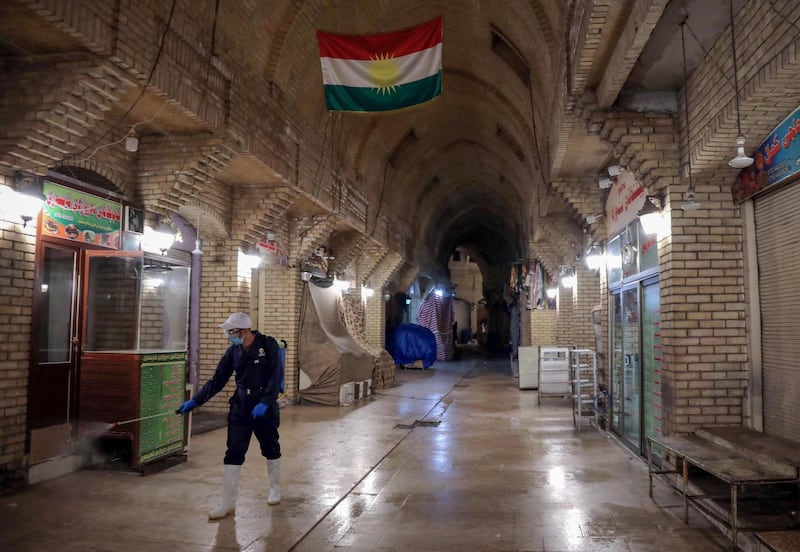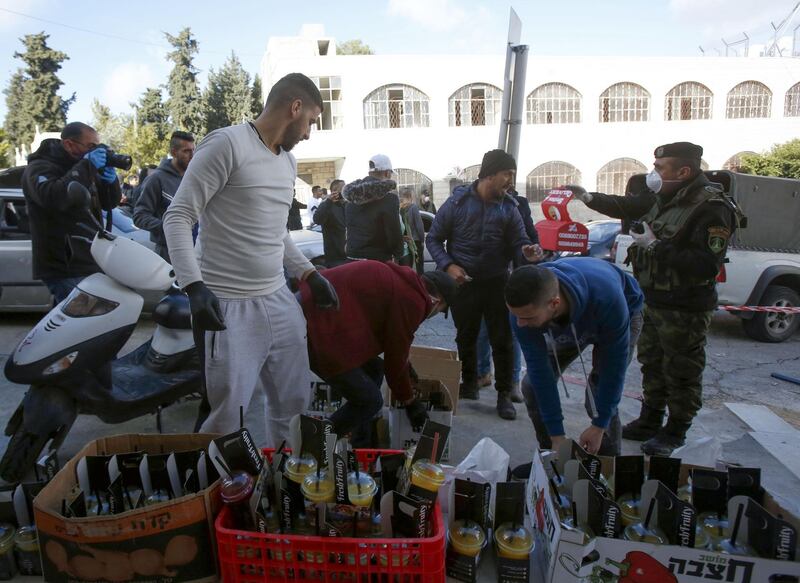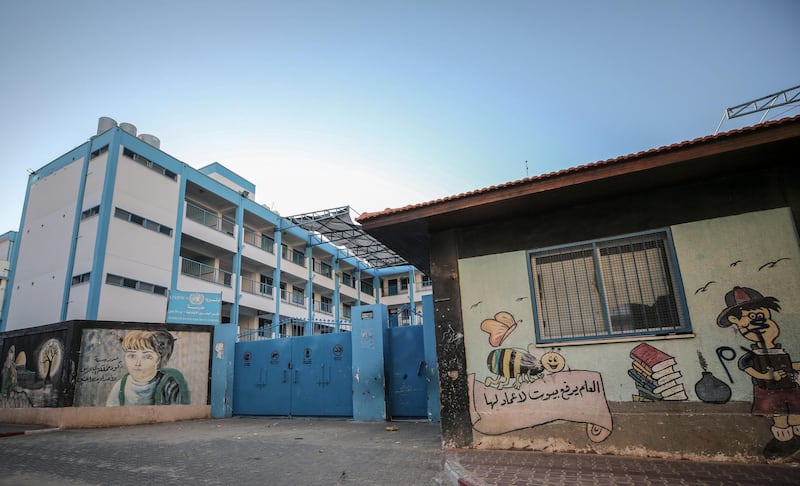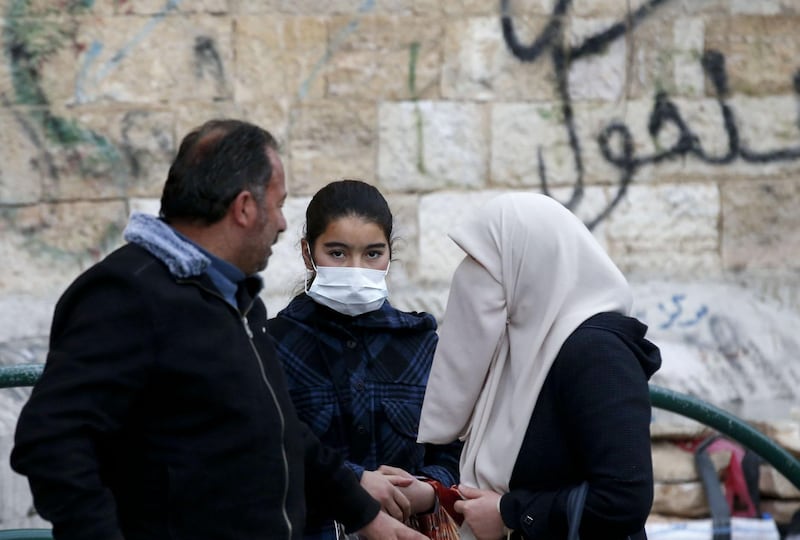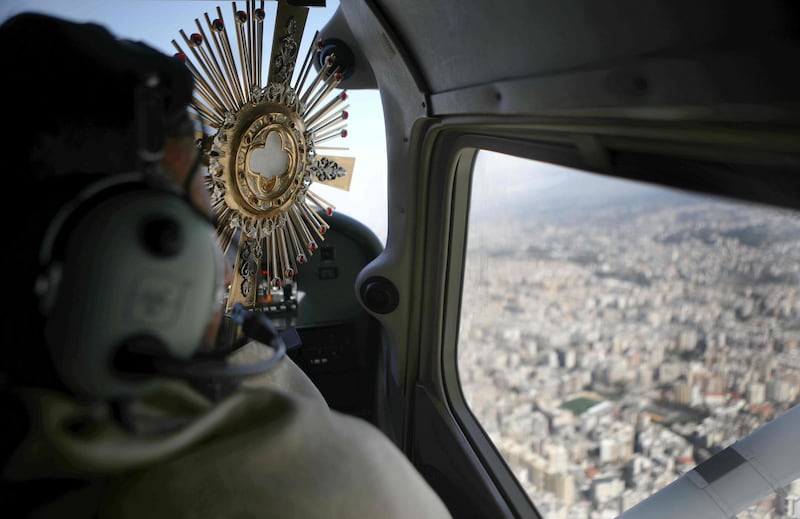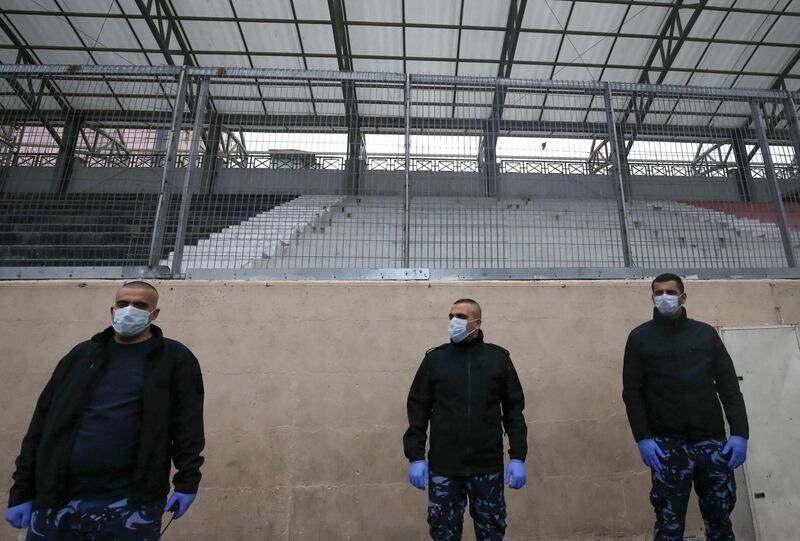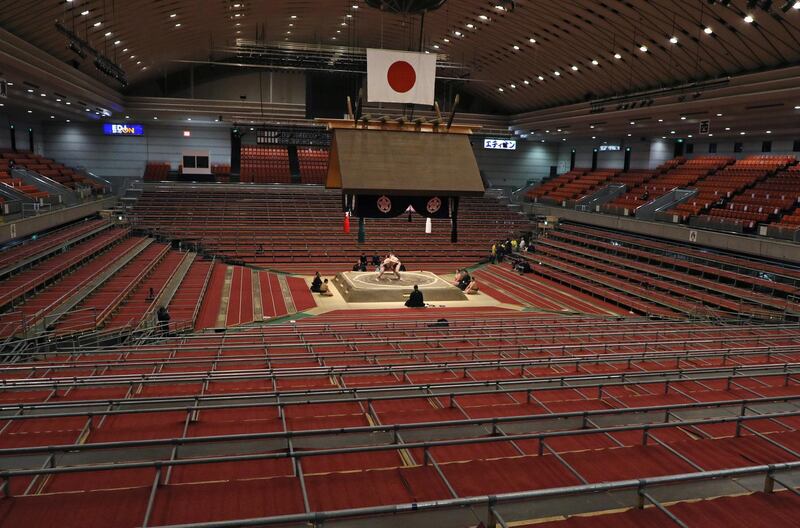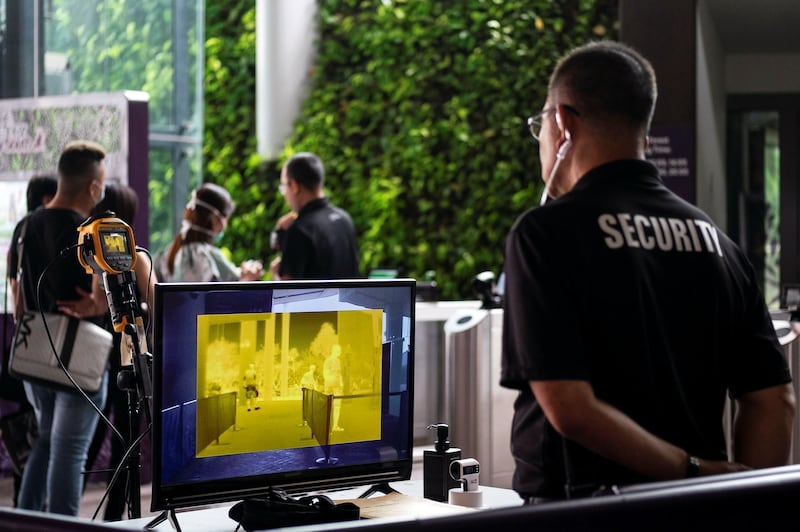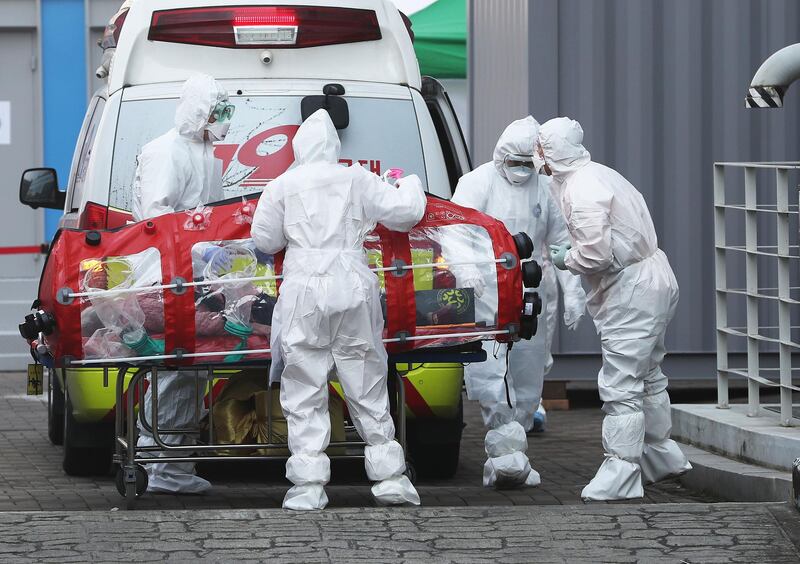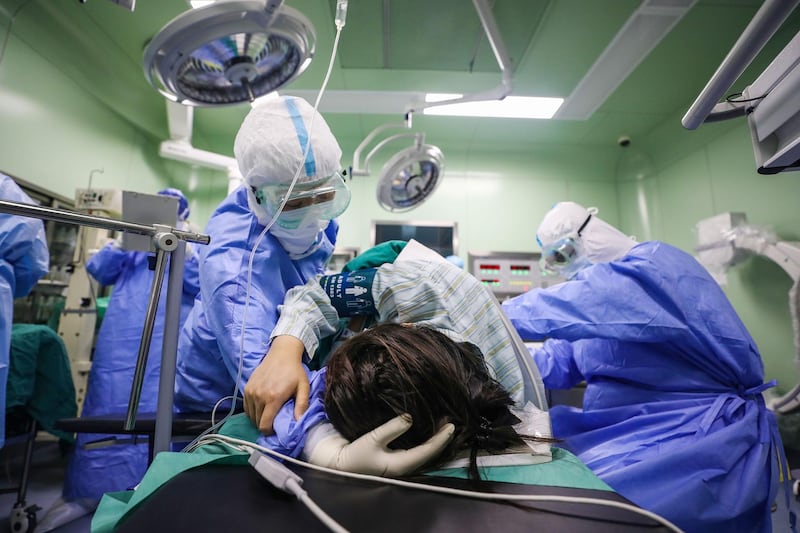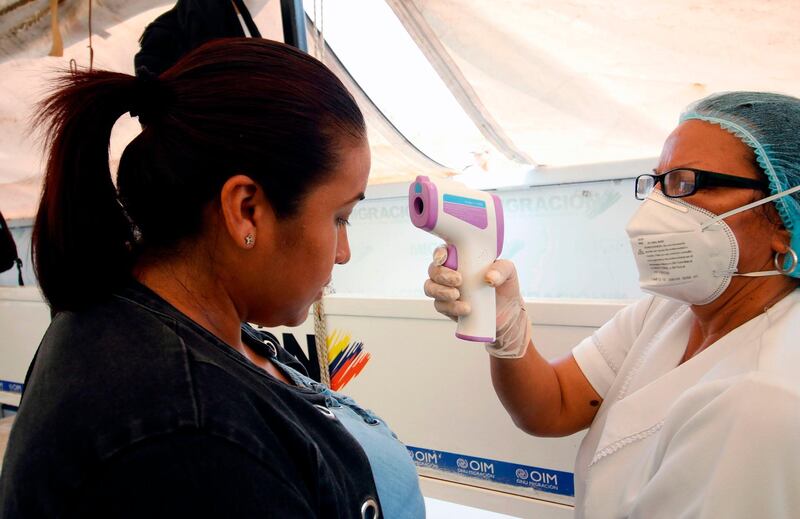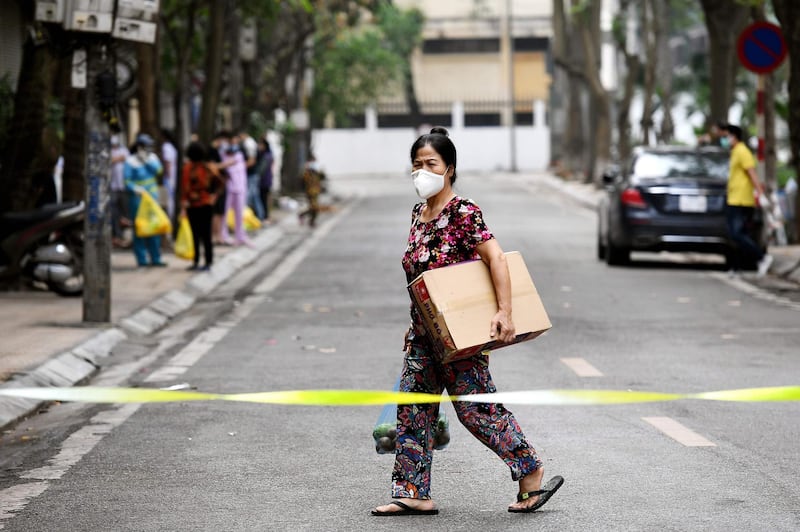Catholic churches in the UAE have been told to remove holy water and overhaul a sacred ritual due to fears over the spread of coronavirus.
Paul Hinder, the pope’s most senior representative in the Arabian Peninsula, has told churches to empty their fonts and make changes to communion to avoid spreading the illness.
In a letter, seen by The National, Bishop Hinder tells church members that they need not be "unduly alarmed" by Covid-19 but that precautions would "limit the risks".
More severe measures may be imposed in the future, he warned.
“The holy water fonts at the church entrance should be emptied. Holy Communion will be received in the hand. The faithful should be instructed on the proper way to receive it,” he said in an eight-point plan.
“It is recommended that Communion ministers use hand-sanitisers to clean their hands before distributing Holy Communion.”
Traditionally, the ritual involves a small piece of bread, which symbolises the body of Christ, being placed into the tongue of believers.
In another move, Church authorities have said that the sign of peace, which usually involved members of the congregation putting their hands together and touching fingertips or simply shaking hands, should be replaced with a bow of the head.
Meanwhile, some religious gatherings and events have also been axed.
In his letter, Bishop Hinder orders that catechism classes, which involves instruction in the teachings of the Church usually to children, are suspended in line with school closures.
Approval of the bishop should be sought for any organised group visits or pilgrimages to churches or holy sites, or international meetings.
People with serious colds or other illnesses have been advised not to attend church.
Some worshippers told The National that services over the weekend were noticeably quieter than normal.
“The UAE government authorities are taking timely and effective precautions to greatly minimise the risk of the spread of the virus,” Bishop Hinder's letter stated.
“There is, therefore, no need for us to be unduly alarmed or panic.
“At the same time, it is good for us to follow the example of the civil authorities in taking certain precautions to limit the risks. This is also necessary because of our unique situation as a migrant church, with faithful moving in and out of the country for professional or personal reasons.”
The new guidelines came into force on Friday, and will remain in place until April 2.
Bishop Hinder's letter was distributed in the Apostolic Vicariate of Southern Arabia, which covers the UAE, Oman and Yemen.
“Further developments may prompt more stringent measures but for the time being Masses and other group activities are to be carried out as usual, observing due prudence and necessary precautions,” the bishop said.
“The current situation is a time for us as Catholics to give an example of faith, hope and charity in the midst of anxiety and uncertainty.
“I recommend the intention for the end of the coronavirus and for all those affected to our public prayers, as well as to your personal prayers, self-denial and charity this Lent,” he said.
Last week, Muslims in the UAE were told not to attend prayers in mosques if they were feeling unwell or their immune system had been compromised.
The country’s Fatwa Council on March 4 said anyone at risk of potentially contracting coronavirus – including senior citizens, those suffering from a respiratory disease and people who have weakened immune systems – should avoid going to mosques and pray at home instead.
